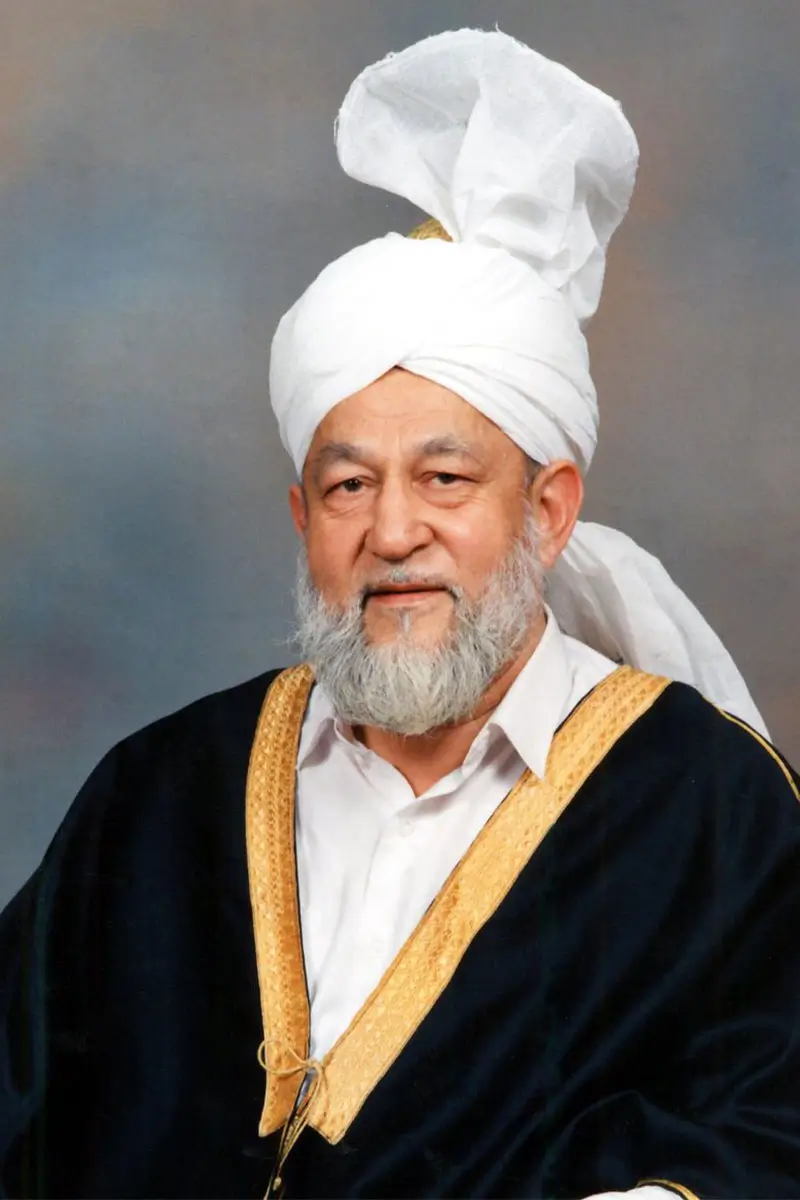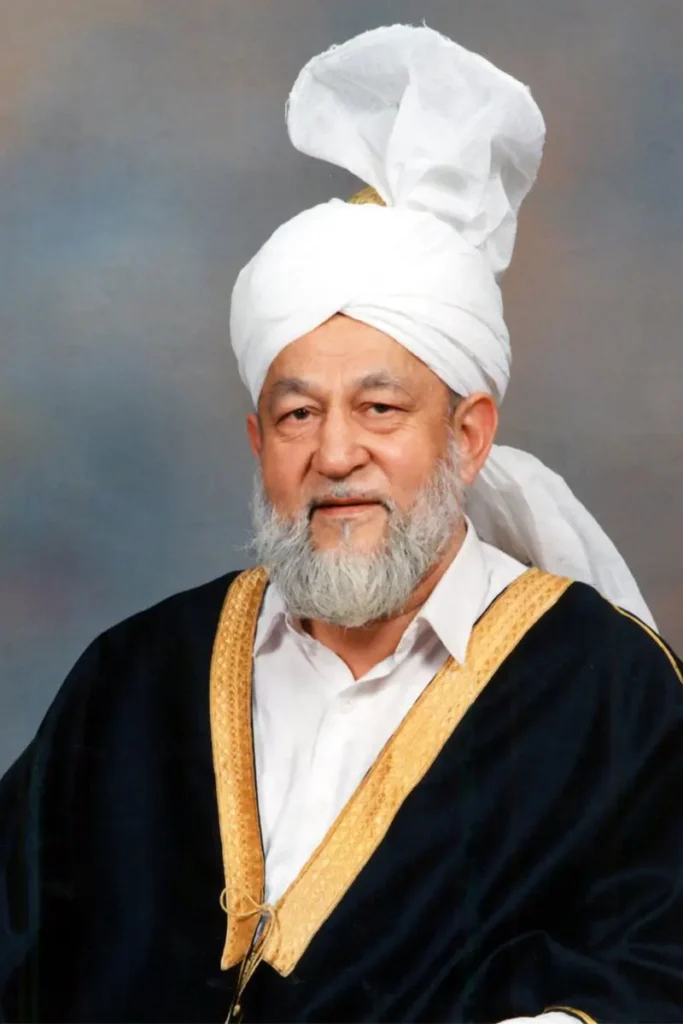Questioner: I’m a Muslim, yet I’ve got so many friends who are Christians, and I’ve talked to them much about the Caliphate which we have. Some of them, well, they take it to be something like the Catholic dome, or what I would say, just like the Catholic, as they have the Pope. So I would be very much glad if the Caliphate is shown, I mean, the differences between that of the Caliphate and that of the Pope.
Huzoor (rh): I see, I understand. You see, the difference is, in some areas there are differences, in some other areas there are similarities. Most important of all, in my opinion, is the belief of infallibility of Pope. In Roman Catholicism, they believe that Popes cannot err, their decisions are always right. And when they confronted the dilemma of one Pope in history giving a verdict on the same issue, so completely different from the verdict given on the same issue by another Pope, they had in fact no solution to the problem. We as Ahmadis believe that Caliphs, as they are called, the deputies of prophets, they are not infallible. They can make mistakes, but what we believe is that even when they make mistakes, because they are truthful, when it is pointed out to them that this mistake has been committed, they are brave enough and they love truth enough to accept their mistake and mend their way. So they are human, but they are guided by the light of their inner truth. And when you are true, then even mistakes do not make such important a difference. As long as you make mistakes in honesty, and as long as you are honest enough to own your mistakes and rectify them. So that is one major difference between the Popes and the Caliphs. Again, the Caliph believes to be the servant of his people, believes himself to be the servant of his people. And that is highly stressed in Islamic concept of leadership. Once the holy founder of Islam said, which means, the leader of a people is the one who is their servant. So this attitude is lacking in Popedom and its relationship to the Christianity. They are the overlords, the representatives of God in a manner as they stand beyond everything. And as if they are the passageway between humanity and Christ. This is not the concept of Caliphate in Islam, in Ahmadiyyat. We believe that you are only leader if you are truly servant in your attitude to the people. If you are humble enough to meet the people at their own level, and to know that you belong to them, and as long as you serve them, you retain the title of leader. The moment you adopt the attitude of being served, you lose the title. So this is also a very important attitude which I find essential in Caliphate, which I also find lacking in the attitude of Popedom. Again I believe that in Papacy, the relationship between Pope and God on the one hand, and Pope and the people on the other hand, as I have already mentioned, is the relationship of a passageway like thing. And the common people who do not agree for instance with Pope, or do not have a relationship with God through Pope, they are considered to be false claimants to spirituality. While in Ahmadiyyat, the concept of relationship with God is so wide, based on the teachings of the Holy Quran, that even those who are not Muslim, not to mention Ahmadiyyat, even those who are not Christians, they are Jews, even those who are Zoroastrians, according to this concept, religion can be different, and religion can be wrong. Yet if a man is right and truthful, he still has the right to have a direct link with God. And it is God who established that link, because wherever truth is found, God loves truth. So ideology is important, but not that important. The difference in ideology can be based on genuine differences, the genuine disagreements. So if somebody doesn’t understand Christianity, why must he be condemned to hell? If someone genuinely cannot understand Islam, why must he be condemned to hell? If someone genuinely does not believe that I am true, and I have the right to lead spiritual people, why should he be condemned to hell? If he’s true, and if he does not understand, the dictate of the truth would be that he must deny that which he doesn’t understand. So why should he be punished for truth? So this is the major difference, I believe, that we believe that those who are not related to me, if they are true, and God knows better if they are true, they have no fear. And I’m not a most essential must for deliverance from sin or for deliverance from Satan. Most important is your inner truth and your attitude to life, your love of God on the one hand, and love of humanity on the other. So Caliphate is to promote that love, not to stand in the way of that love. I think that should suffice for the time being.








